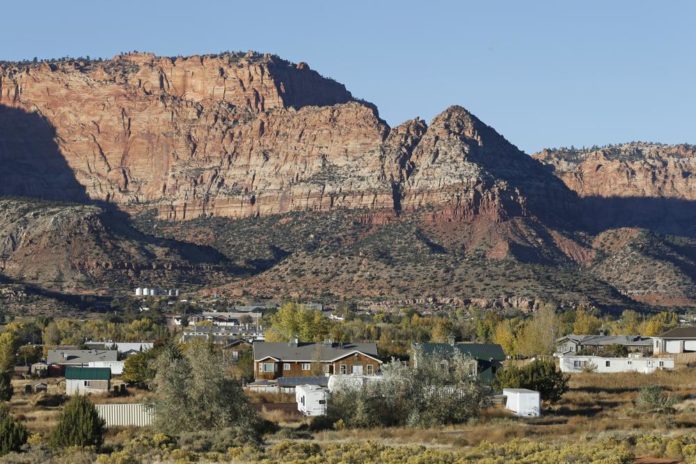
A small, remote northern Arizona town where a polygamist group used to be dominant makes few headlines these days. But that doesn’t mean it’s been entirely forgotten.
Mohave County officials have decided to support a project to assess and address the long-isolated community’s health needs, Today’s News-Herald reported.
County Health Director Denise Burley said her department will benefit from new data and work with community members to create strategies to address residents’ needs.
The process will largely be conducted by the community itself, Burley said. “It won’t be our staff or county staff who will be working on this,” Burley said. “The community members themselves will come together and do the work.”
The Fundamentalist Church of Jesus Christ of Latter Day Saints, the sect that long dominated the Short Creek area that includes Colorado City, was run by Warren Jeffs, but he’s now serving a life sentence in Texas for sexually assaulting girls he considered brides.
The FLDS was an offshoot of The Church of Jesus Christ of Latter-day Saints, which is based in Salt Lake City and included polygamy in its early teachings but abandoned the practice in 1890 and prohibits it today.
The sect chose to locate itself in the red-rock canyon country of the sparsely populated Arizona Strip region north of the Grand Canyon partly because of its isolation.
Colorado City is 136 miles (219 kilometers) northeast of Kingman, the county seat, and even farther from the county’s other population centers of Bullhead City and Lake Havasu City. And the driving distance is about twice as far because of the need to go into southern Nevada and southwestern Utah to circle around the Grand Canyon.
The county Board of Supervisors voted February 14 to use federal money from the 2021 American Rescue Plan Act to pay half of the $65,000 cost of the community assessment, with matching money provided by Care1st Health Plan of Arizona.
Other participating organizations, Cherish Families of Arizona and Utah, a Colorado City-based nonprofit that serves polygamist and former polygamist communities.
The Colorado City area lacked health care for about ten years, said Shirlee Drape, director of Cherish Families.
“There’s a history of trauma in the community,” Draper said. “Some of the kids were taken from their families by Jeffs. Residents have mental health needs that need to be addressed, and there may be a higher amount of poverty in the area than in most other communities.”
Draper said many residents previously weren’t interested in outside offers of help, but that has changed over the past decade.
“The change is almost unbelievable,” Draper said. “You practically have to see it to believe it … there’s a lot more diversity in the area, and you don’t see people wearing the same kind of clothing when you drive into town. It looks like most other communities in America. It’s a different place, and it’s on the verge of a complete renaissance.”













